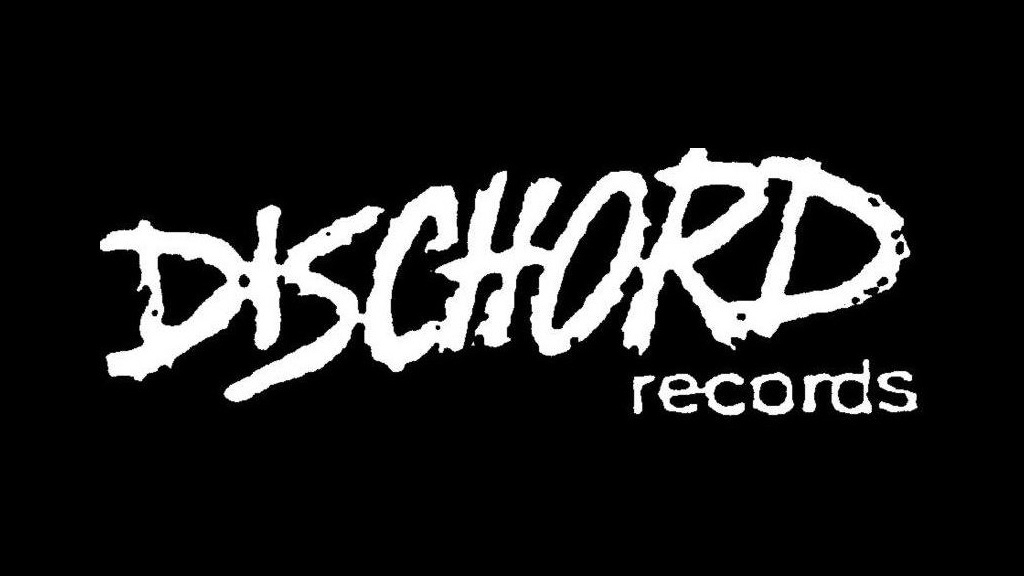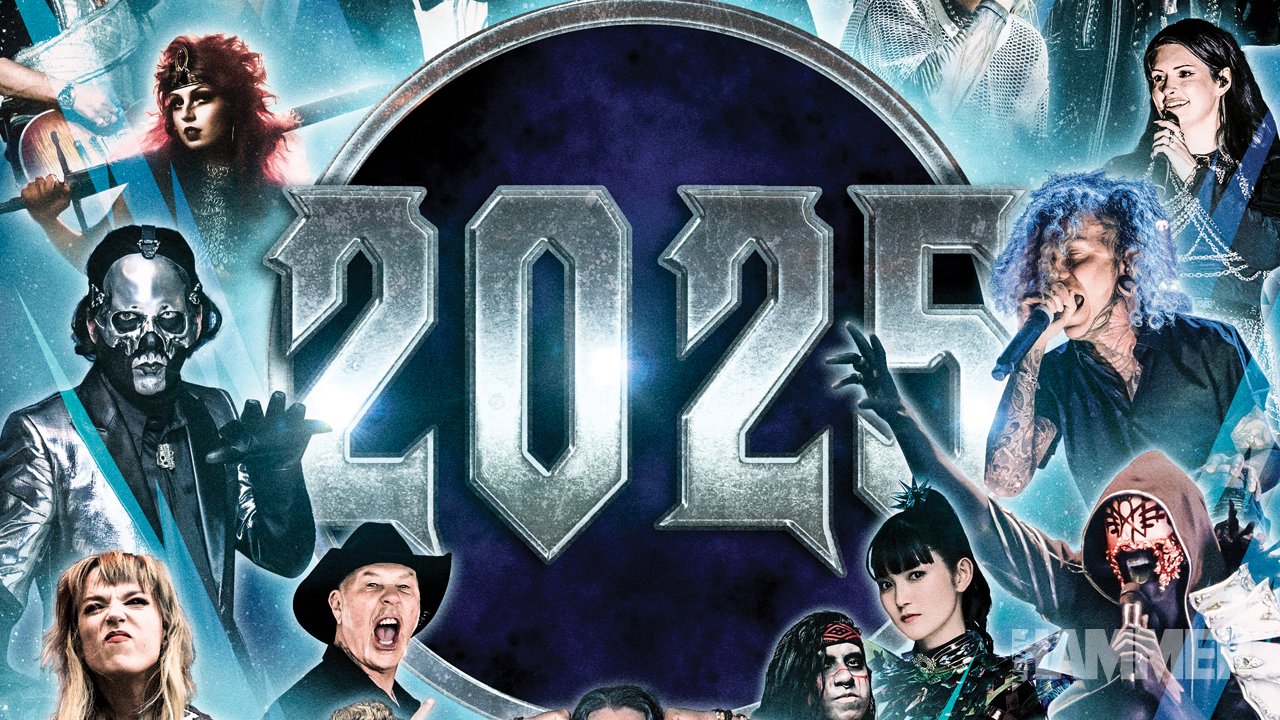The 10 most underrated Dischord Records albums
Looking back at some of the unsung releases from Ian MacKaye's iconic label

Never mind what you might have been told: the Dischord Records story does not begin with Minor Threat or end with Fugazi. Of course, it’s difficult to overstate the impact both of those bands had on the legacy the label created. But it was as Dischord made moves to expand and diversify that many of its less-well-known artists risked falling through the cracks. Veer away from the staple ‘80s hardcore, and you’ll find a back catalogue that is as thoughtful, daring and experimental as any other.
Here are 10 records that prove there’s more to life than Repeater…
The Faith – Subject To Change (1983)
Unfairly consigned to a fate of being known as “that band from the other side of the Void split”, when The Faith came back with follow-up Subject To Change, the band had matured and their sound had grown. Alec MacKaye’s vocals had developed melody and nuance, while the addition of second guitarist Eddie Janney added a depth and sophistication to their sound that set them apart from their Dischord counterparts. The band split months before the release of the album, and its members scattered into various projects – among them Rites Of Spring, whose seminal self-titled album is widely credited with providing the influential post-hardcore template. Despite its role in cultivating this sound, Subject To Change remains an under-appreciated gem.
Three – Dark Days Coming (1989)
Comprised of three parts Dischord staple Gray Matter and one part co-founder Jeff Nelson, Three are one of the label’s most inexplicably overlooked bands. Picking up where Gray Matter left off, Dark Days Coming is an infectious slice of joyous post-hardcore. Together for only one album, Three specialised in tightly-crafted songwriting that traded as much on a Beatles-influenced fixation with melody as it did their punk-rock roots, with this album containing Dischord-discography highlight and ‘90s mixtape mainstay Swann Street.
Various Artists – State Of The Union (1989)
Recorded as a benefit for the American Civil Liberties Union and the Community for Creative Non-Violence, State Of The Union is as fine a document of the label in the late ‘80s as you’re likely to find. Including Dave Grohl’s pre-stardom outfit Scream (although admittedly not one of the band’s finest cuts), as well as a number of rare and unreleased recordings from Fugazi, Broken Siren and office weirdos Fidelity Jones, the comp shows how varied the label had become by the end of the ‘80s. Even better, it’s still available on the Dischord website, with proceeds still going to the original charities.
Circus Lupus – Super Genius (1992)
By the time the ‘90s rolled around, the label had started to pull away from their hardcore roots, opening themselves up to a world of noise and art rock in the process. Circus Lupus relished confrontational experiments in jerky, awkward post-hardcore, and Super Genius’ scuzzy, grungy undercurrent suggests that there should have been a place for them alongside noise-rock pioneers The Jesus Lizard, as well as labelmates Shudder To Think and Jawbox. However, this album and its follow up Solid Brass (1993) remain perpetually overlooked.
Slant 6 - Soda Pop * Rip Off (1994)
Picking up where Christina Billotte’s alt-rock group Autoclave left off, Slant 6’s frantic garage punk combined elements of both Dischord’s increasingly sophisticated art-oriented sound and the explosion of the mid-90s riot-grrrl movement. Soda Pop * Rip Off is the best example of this, blending punchy post-punk with irresistible hooks and tightly-honed songwriting. The band broke up in the middle of a UK tour with Fugazi, shortly after the release of their second album (1995’s Inzombia). This abrupt end to their career could explain why the band never received the dues they deserved, but Soda Pop * Rip Off’s visceral energy refuses to fade.
Sign up below to get the latest from Metal Hammer, plus exclusive special offers, direct to your inbox!
- 14 things we learned from punk legend Keith Morris' new book
- The 10 best singles released by Dischord from 1985-2002
- The 10 Essential 90s US Punk Albums
- The 10 most underrated Roadrunner Records albums
Hoover – The Lurid Traversal Of Route 7 (1994)
Part of Dischord’s mid-90s emo explosion, Hoover combined tight, groove-laden jams with furious bursts of musical chaos, experimenting in constant shifts between light and shade. This is demonstrated most coherently on Route 7, where awkward, angular guitar dissonance scratches above the top of the rhythm section’s foreboding thrum. The result is a clawing sense of urgency that’s never far from the record’s surface. Hoover, naturally, disbanded shortly after the album’s release in 1994, and despite reforming twice, have never produced anything to match this album’s intensity.
Smart Went Crazy – Now We’re Even (1995)
Possibly the only Dischord band ever to include a cellist as a core member, Smart Went Crazy’s measured, meandering alt-rock opened the label up to a softer, more considered take on punk rock. But that’s not to say it was lacking in power – thick with brooding guitars and unflinchingly personal lyrics, the maturity expressed in this album was miles ahead of most of their labelmates at the time. Followed by Con Art in 1997, this album represents Dischord at its complex best.
Fire Party – 19 Songs (1996)
Technically not just one album, this anthology CD collects everything Fire Party ever recorded, from 1988’s self-titled EP to 1989’s New Orleans Opera mini-LP and an all-but forgotten Peel session. The quality of the ferocious post-punk documented here rivals any big-league Fugazi release, with Amy Pickering’s rasped vocals providing a suitably bratty template for Suzi Gardner, Courtney Love and the nascent grunge scene. Pickering’s influence on the label reached beyond just her musical input: as a Dischord employee, she allegedly ripped down a sign in the label’s HQ that read “no skirts allowed” on her very first day of work. The sign was never reinstated.
One Last Wish – 1986 (1999)
Combining members of Rites Of Spring and Embrace, 1986 basically serves as Rites Of Spring’s second album in everything but name. Guy Picciotto’s distinctive vocals are underpinned by Michael Hampton’s Smiths-influenced guitar noodling, and the album continues the exploration of the post-hardcore template laid down in Rites Of Spring’s self-titled album. Together for only six months in 1986, this album was recorded in November of that year but quickly shelved when the band broke up a month later. Despite being heavily circulated in tape-trading circles, the album languished on Dischord’s shelves for 13 years before its official release in 1999, by which time the movement had moved on and the album was met with limited interest. Had it been released on recording, chances are it would have become one of the most important albums in Dischord’s catalogue.
Black Eyes – Black Eyes (2003)
By the time Dischord reached the 2000s, it was an entirely different beast from its early-80s incarnation. With Fugazi beginning to wind down, the label’s efforts were mainly being focussed on the sort of experimental, obnoxious art-rock being pedalled by the likes of label darlings Q And Not U. Black Eyes’ debut album – with its jagged, disjointed guitar work and snotty, screeched vocals – is an excellent example of the changing face of the label. But, in great Dischord tradition, the band broke up a few months before the release of their second album (2004’s Cough), and have been little more than a label footnote since.
The top 10 most underrated US hardcore albums
My Top 5 Punk Guitarists by Gallows' Laurent Barnard
The 10 best punk rock singles, by The Undertones' Michael Bradley
Briony is the Editor in Chief of Louder and is in charge of sorting out who and what you see covered on the site. She started working with Metal Hammer, Classic Rock and Prog magazines back in 2015 and has been writing about music and entertainment in many guises since 2009. Her favourite-ever interviewee is either Billy Corgan or Kim Deal. She is a big fan of cats, Husker Du and pizza.

